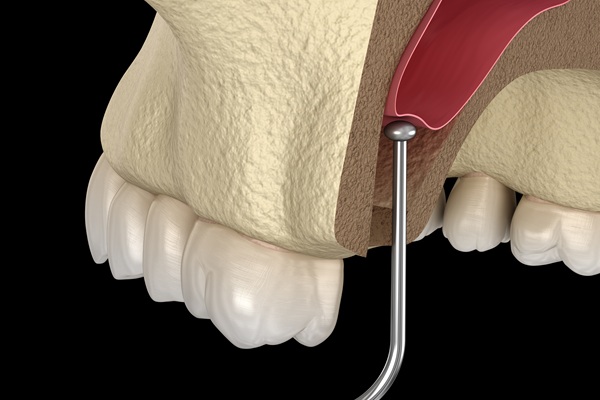3 Common Procedures Performed by an Oral Surgeon

An oral surgeon corrects orthodontic and dental problems that cannot be resolved with non-surgical treatments. They perform oral surgeries that range from tooth extraction to jaw reconstruction.
Patients that are about to undergo oral surgery are often worried and intimidated by the thought of going under the knife. With advances in surgical techniques, anesthesiology and post-surgery pain management, oral surgery can be pain-free and fairly non-invasive.
Oral surgery corrects problems that affect a person's quality of life. Which means that once a patient recovers from the surgery, they reap the benefits of improved health.
When would a person need the services of an oral surgeon?
1. Complicated tooth extractions
Both a dentist and an oral surgeon can extract teeth that have crowns above the gum line. However, it is an oral surgeon who has the training and experience to extract teeth that are 'stuck' under the gum line.
Extracting such teeth requires the oral surgeon to open the gum and dislodge the tooth from the jaw. Dislodging the tooth could be as simple as shaking it loose. In the case of an impacted tooth that is growing horizontally, the tooth may have to be cut out of the jaw.
After extracting the tooth, the surgeon closes the gum by sewing it shut.
2. Dental implants
Many people choose to replace missing teeth with dental implants because they are permanent and function exactly like natural teeth. Dental implants are placed in the jaw, and that is right up an oral surgeon's alley. Placing dental implants is an oral surgery that involves:
- Making an incision in the gum to expose the jawbone
- Drilling a small hole in the jaw to make space for the implant
- Placing the dental implant (and an abutment where applicable)
- Sewing the gum shut
Placing dental implants is fairly straightforward, but if the patient needs a bone graft, the surgery gets a bit more complicated.
3. Corrective jaw surgeries
Different jaw issues require different types of surgeries, and oral surgeons have the training and experience to correct a wide variety of jaw disorders. For example:
- An oral surgeon will perform reconstructive surgery on a jaw that has been shattered or broken.
- They also perform surgery to correct the misalignment that occurs when one side of the jaw grows more than the other. After the surgery, orthodontic treatment is used to further align the jaws.
- Surgery can also be used to correct congenital deformities of the jaw. By reshaping or aligning the jaws, oral surgery will improve a patient's breathing and chewing. These corrective surgeries are often used to cure sleep apnea and other breathing disorders caused by defects of the jaw.
Oral surgery fixes problems that no other treatment can
A patient should view oral surgery as a permanent solution for an otherwise untreatable condition. A dentist would not recommend surgery if there was another way; oral surgeons strive to use minimally invasive procedures, and pain medication and anesthetics ensure that a patient feels no pain during and after surgery.
Oral surgery will improve a person's health and quality of life for the rest of their lives. Contact one of our surgeons if you are dealing with an issue that requires a surgical treatment.
Request an appointment in our Brighton dentist office here: https://brighton.drjstearns.com.
Check out what others are saying about our dental services on Yelp: Oral Surgery in Brighton, CO.
Recent Posts
A sinus lift procedure goes by many other names, including sinus elevation, sinus augmentation, and sinus graft. It can be an important step in the process of having a dental implant placed in the upper jaw to replace a missing tooth. The procedure involves raising the floor of one of the maxillary sinuses and filling…
Facial trauma treatment differs based on the severity and location of the damage. Continue reading to learn how an oral surgeon addresses facial trauma. It can cause other medical issues, so it is important to seek treatment promptly. An oral surgeon is a face trauma specialist who is trained in maxillofacial surgery and treatment. They…
Oral bone grafting procedures can help restore mouth functionality, health, and appearance. These surgical procedures vary in type and extent. Continue reading to learn more about dental bone grafts, the surgical grafting process, and why someone might need oral bone grafts.Surgeons perform bone grafts throughout the body. Oral bone grafting occurs in the mouth, usually…
An oral pathology must receive immediate treatment. This can prevent more complications later on. Your oral surgeon can help correct any dental problem. Here are the details about each common oral pathology and its corresponding treatment.This oral pathology results from a bacterial infection because of plaque buildup. Symptoms of this condition include gum bleeding and…


